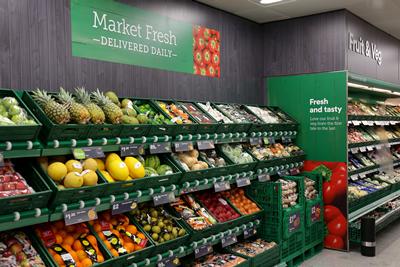Healthy diet with nutritional supplements support body in fight against COVID19

An international research team, including Professor Philip Calder from the University of Southampton, has published a new report advising how the public can support their immune system and give it the best chance of fighting the coronavirus.
A diet with a diverse and varied mixture of vegetables, fruits, nuts, seeds and pulses, along with some meat, fish and dairy products provides the vitamins, minerals and other nutrients the immune system needs for optimal function. However, the researchers recognise that supplements are a safe, effective and low cost way to support an optimal immune system where the diet does not provide enough of certain vitamins, minerals and omega three fatty acids.
Acute respiratory tract infections are a major cause of mortality globally as highlighted by seasonal influenza epidemics and the current outbreak of COVID19, caused by the coronavirus SARS-CoV-2.
A healthy immune system will help the body fight the virus and there are a number of ways in which nutrition can support it in this fight. Despite this, advice on nutrition is often missing in public discussions about immunity and infection.
Whilst vaccination programmes can prime the immune response in cases of exposure to viruses, their levels of protection can vary and a vaccine has not yet been developed for COVID19. The researchers are therefore calling for public health officials to include nutritional strategies in their recommendations to improve public health.
Philip Calder, Professor of Nutritional Immunology, explained “The strength of somebody’s immune systems will not influence whether they get coronavirus; handwashing and social distancing are the best ways to avoid that. However, the immune system helps the body deal with the virus if they are infected and what we want is a system that functions properly when it’s challenged with bacteria and viruses.”
Among the foods Professor Calder recommends are a variety of fruits and vegetables which are a good source of vitamins and minerals that are important for supporting the immune system. Foods that are high in fibre are also important as some of the undigested fibre in the gut can promote the growth of good bacteria which interact with the immune system to make it work better. The third recommendation is oily fish which is a source of omega 3 fatty acids that help to regulate and control the immune system. Finally, meat is important as a good source of nutrients such as iron and vitamin B12, so people who do not eat meat should consider supplements.
Whilst consuming commercial probiotic products can have a role to play – by seeding good bacteria in the gut - Professor Calder recommends plant based food and fibre as an alternative as these provide an environment to grow the good bacteria that are already in the large intestine.
Professor Calder added, “The present situation with COVID19 shows that we cannot just rely on vaccinations to limit the impact of respiratory infections. Improving our nutrition is a very straight forward step that we can all take to help our bodies deal with infections and limit the emergence of new, more virulent strains of viruses. We therefore strongly encourage public health officials to make sure nutritional strategies are included in all their messaging about coping with viral infections.”
The report is currently published on the Pre-Prints website ahead of peer review.
Watch the video below to see Professor Calder speak to Which? about supporting the immune system (Credit: Which?)